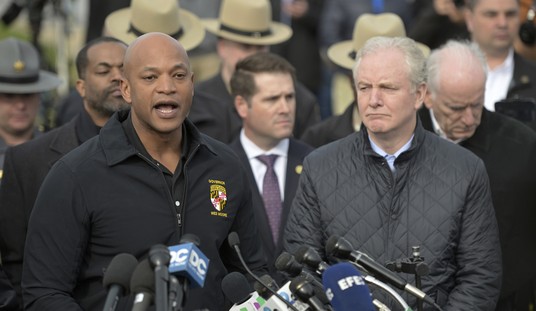New York Times tech columnist Kevin Roose can’t believe that Facebook would host this kind of and this much”right-wing misinformation”:
Facebook is absolutely teeming with right-wing misinformation right now. These are all among the 10 most-engaged URLs on the platform over the last 24 hours (per @NewsWhip data) pic.twitter.com/WlTR10fRBE
— Kevin Roose (@kevinroose) November 10, 2020
A Newsmax video full of debunked voter fraud conspiracy theories (dead people voting, poll watchers barred, software glitches) is the 3rd most-shared post of the past three days. 15 million views, 345,000 shares. pic.twitter.com/BQw4WhYM6J
— Kevin Roose (@kevinroose) November 10, 2020
We’re not seeing where the “misinformation” is, Kevin.
Are any of these stories fake?
— Joe Weisenthal (@TheStalwart) November 10, 2020
Please explain how these stories are misinformation.
— Tim Carney (@TPCarney) November 10, 2020
You do know these are actual stories and not "misinformation" right? I mean, they actually REALLY happened.
You do know what the term "misinformation" means, right?
— Ordy Packard's Amish Pumpkin Spice (@OrdyPackard) November 10, 2020
Misinformation?
AG Barr did authorize the USAtty's to investigate.
Perdue and Loeffler did call on the GA SoS to resign.
A computer error in Michigan did end up flipping a race from Dem to GOP.
And the Michigan legislature is holding emergency hearings. https://t.co/Y0e680DhFP
— Gabriel Malor (@gabrielmalor) November 10, 2020
No, no … back off, you guys. When Kevin says “misinformation,” he doesn’t necessarily mean, you know, misinformation:
Many of the top-performing voter fraud claims have labels IDing Biden as the winner. But some (like the Newsmax video) don't. And it's not clear that labels are doing much. 6 of the top 10 most-engaged posts from US pages in the past 24h are from Trump, including 4 with labels.
— Kevin Roose (@kevinroose) November 10, 2020
Recommended
The tricky thing, for Facebook, is that some of the most viral stories aren't strictly false. (Perdue + Loeffler *did* call for the SOS's resignation.) But they are feeding a stolen election narrative that is going to be hard to dial back.
— Kevin Roose (@kevinroose) November 10, 2020
Solid B+ for effort, Kevin.
— JERRY DUNLEAVY (@JerryDunleavy) November 10, 2020
NYT tech reporter incorrectly labels four factual stories as “misinformation.” he then defends his false labeling by arguing something can be both accurate *and * misinformation. it’s calvinball. some deep rot at NYT, especially in its wackadoodle tech reporting battalion. pic.twitter.com/49frmKYMFJ
— tsar becket adams (@BecketAdams) November 10, 2020
This hedge is so bad considering the sheer volume of real news that gets caught up in efforts to build false narratives.
(I could pull at least a handful of pretty prominent false narratives NYT itself “fed”) https://t.co/RvRwcLizlK
— Geoffrey Ingersoll (@GPIngersoll) November 10, 2020
It’s OK when the New York Times feeds — and invents — false narratives.
Listen, conservatives. Y’all need to stop pouncing on him already:
For the conservatives who are mad about this: yes, it is possible for a story to be factually accurate *and* for it to be part of a misinformation campaign aimed at undermining confidence in an election. https://t.co/Ag4brfJzO4
— Kevin Roose (@kevinroose) November 10, 2020
Take Breitbart, for example. All week, they have been getting huge engagement with stories about election-related "glitches," and Republicans protesting the results. In some cases, they're just repeating what a politician said. pic.twitter.com/it0jF0fE3f
— Kevin Roose (@kevinroose) November 10, 2020
Most of these stories aren't "false," per se. Many have been reported elsewhere. But if you look at how they're framing and serving them up ("BAM," "REVEALED," "JUST IN") and what facts they aren't including, it's obvious they know what they're doing.
— Kevin Roose (@kevinroose) November 10, 2020
The people who run these pages know that they can't claim outright that the election was stolen, because Facebook's fact-checkers might ding them. So they do the just-asking-questions thing, and use "discussion threads" and cherrypicked headlines to accomplish the same thing. pic.twitter.com/Ut3QXOAat6
— Kevin Roose (@kevinroose) November 10, 2020
There's a big audience for these stories. Big conservative influencers (in the case of these two Breitbart stories, Trump himself) post them to their pages, generating tens of thousands of engagements and a huge swell in traffic. pic.twitter.com/oXAPUBph5K
— Kevin Roose (@kevinroose) November 10, 2020
The people at Breitbart might not personally believe that the election was stolen. But they're egging on the president, and feeding a hyperpartisan ecosystem that is telling millions of people that it was stolen, because it's good for engagement.
— Kevin Roose (@kevinroose) November 10, 2020
We need a better word than "misinformation" to distinguish between totally false stories and true stories that are published in service of an attempt to mislead people. But nobody who studies this stuff is confused by what's happening.
— Kevin Roose (@kevinroose) November 10, 2020
Maybe we just need tech columnists who understand that information they don’t like isn’t necessarily misinformation. Maybe we just need tech columnists who understand that they’re supposed to be journalists and not activists.
These stories are not false, of course. But Kevin Roose's actual job — like so many of our tech activists — is not to spot misinformation. It is to badger social media giants into censoring conservative outlets. https://t.co/H3oXMR4Egp
— Ben Shapiro (@benshapiro) November 10, 2020
























Join the conversation as a VIP Member